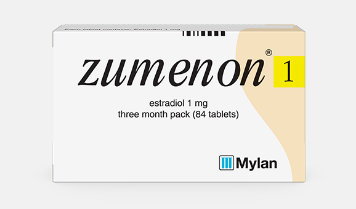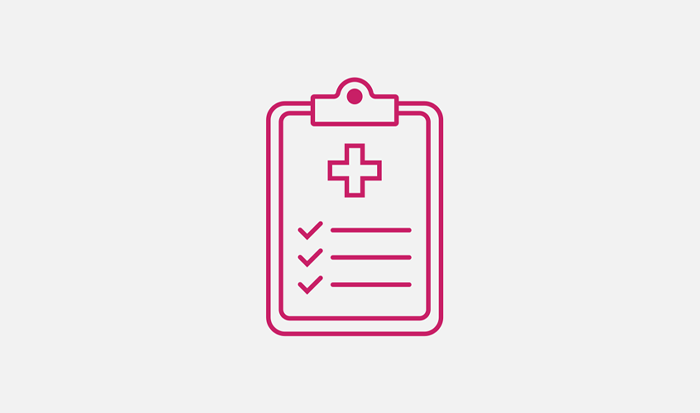Insomnia in menopause
Insomnia is a common symptom seen in women throughout their menopause. It is frequently associated with vasomotor symptoms such as hot flushes and night sweats.1 Behavioural treatments such as sleep hygiene, relaxation techniques play an important role in the overall management of sleep disturbance.1 HRT (hormone replacement therapy) is beneficial to improve sleep through alleviating the vasomotor symptoms associated with the menopause.1
Insomnia or sleep problems commonly occurs in women during menopause with a prevalence rate of 33% to 51%. Perimenopausal women frequently complain of poor sleep quality, recurrent awakenings, drowsiness and requirement of extra sleep.1
What are the symptoms of insomnia?
Insomnia is characterised by difficulty in falling asleep, difficulty in maintaining sleep and non-restorative sleep, which is the subjective feeling of insufficiently refreshing sleep.2
What do we have in common?
We all go our own way.

Complications of insomnia
Chronic insomnia may lead to irritability, sleepiness, increased anxiety, depression, tiredness, impaired work performance, diminished intellectual capability and cardiovascular risk.4 It adversely affects the quality of life, and impairs the social and occupational capability.4
Common causes and factors associated with insomnia during menopausal women
Changes in hypothalamic, pituitary and ovarian hormones are observed during menopause.1 Temperature homoeostasis is impaired due to a reduction in estradiol concentration in the hypothalamic temperature-regulating centre.3 There is a close relationship between the temperature-regulating centre and sleep-regulating centre of the brain, which can lead to simultaneous disturbance in the sleep-regulating centre due to hormonal fluctuation during menopause. In addition, the disruption of temperature-regulation axis causes vasomotor symptoms such as night sweats and hot flushes, which may in turn disturb sleep.1 The severity of insomnia in perimenopausal women is correlated to other factors including overall quality of life, physical and mental health, physical activity, social environment and vasomotor symptoms.4
Assessment of quality of sleep and treatment of insomnia in menopausal women
The quality of sleep can be assessed subjectively by self-reporting or objectively through somnography. In somnography, the brain waves, muscle tension and eye movements are recorded and scored for the stages of sleep.1 It has been observed that vasomotor symptoms such as hot flushes and night sweats increase the occurrence of insomnia in menopausal women. Therefore, effective treatment of these symptoms is beneficial to alleviate insomnia.1 Behavioural treatment includes counselling the patient regarding appropriate sleep hygiene, regulating the bedtime routine and stimulus control play an important role in the overall management of insomnia.1,5
-
References
- 1) Shaver JLF, Zenk SN. Sleep disturbance in menopause. J Womens Health (Larchmt). 2000 Mar;9(2):109-18.
- 2) Ohayon MM. Severe hot flashes are associated with chronic insomnia. Arch Intern Med. 2006 Jun;166:1262-8.
- 3) Rossmanith WG, Ruebberdt W. What causes hot flushes? The neuroendocrine origin of vasomotor symptoms in the menopause. Gynecol Endocrinol. 2009 Jan;25(5):303-14.
- 4) Cuadros JL, Fernandez-Alonso AM, Cuadros-Celorrio AM et al. Perceived stress, insomnia and related factors in women around the menopause. Maturitas. 2012 Aug;72:367-72.
- 5) Attarian H, Hachul H, Guttuso T, Phillips B. Treatment of chronic insomnia disorder in menopause: evaluation of literature. Menopause: The Journal of The North American Menopause Society. 2015 Jun;22(6):674-84.

Zumenon®
Zumenon® is indicated for estrogen deficiency symptoms in postmenopausal women at least 6 months since last menses.

HRT TREATMENT NAVIGATOR
An interactive tool to help tailor individual therapy using the Viatris broad portfolio of HRT treatment options. Answer 2-6 simple questions to get an option now.
HCP Disclaimer
This website is intended for UK healthcare professionals only.
Viatris Connect is an online platform for UK healthcare professionals.
Across the website you will find news, blogs and product information.
FREE Menopause and HRT webinars available to watch by registering to Viatris Connect today
Please note that the website contains promotional and non-promotional material including educational content and resources to help you and your patients.
REGISTER NOW






